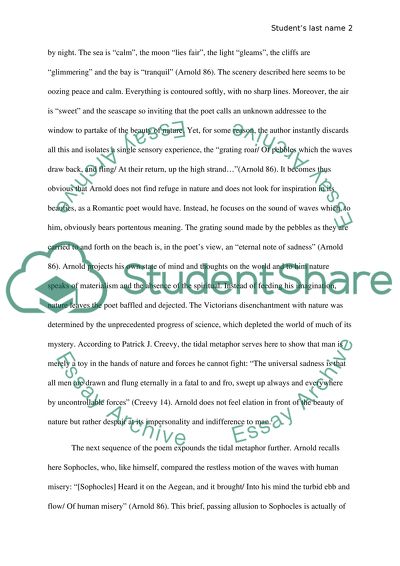Cite this document
(“Dover Beach by Matthew Arnold Research Paper Example | Topics and Well Written Essays - 1250 words”, n.d.)
Retrieved de https://studentshare.org/literature/1585559-dover-beach-by-matthew-arnold
Retrieved de https://studentshare.org/literature/1585559-dover-beach-by-matthew-arnold
(Dover Beach by Matthew Arnold Research Paper Example | Topics and Well Written Essays - 1250 Words)
https://studentshare.org/literature/1585559-dover-beach-by-matthew-arnold.
https://studentshare.org/literature/1585559-dover-beach-by-matthew-arnold.
“Dover Beach by Matthew Arnold Research Paper Example | Topics and Well Written Essays - 1250 Words”, n.d. https://studentshare.org/literature/1585559-dover-beach-by-matthew-arnold.


